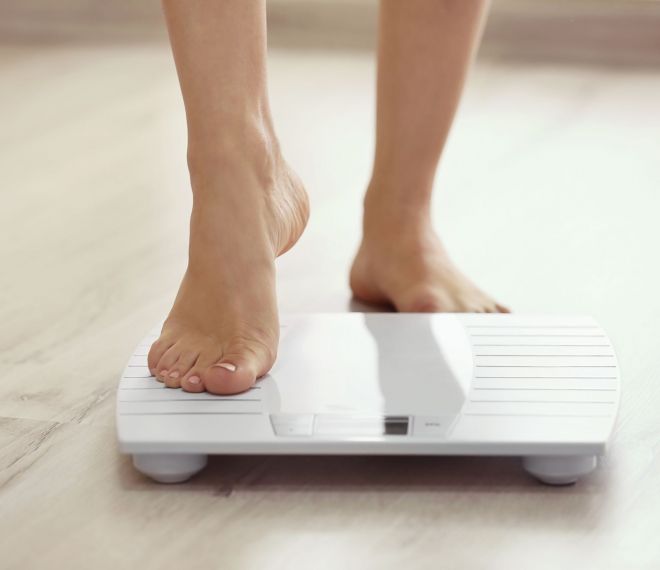Ketogenic diet - more against it than for it

The ketogenic diet forces the body to use fat for energy, thus mimicking starvation. As a result, a significant amount of ketone bodies is formed, and thus the body enters a so-called ketotic state. Ketosis occurs when, in the event of food deprivation, the body generates energy from free fatty acids produced during the breakdown of fats and ketone bodies produced by the liver - in the absence of carbohydrates, the brain tissue can also obtain energy from fats. A person following a ketogenic diet should not experience hunger. Starvation is only tolerated by the body for a short time, while the ketogenic diet can be tolerated for up to years, but this comes with a lot of negative side effects. Due to the high cholesterol level, the risk of cardiovascular diseases increases, and the chance of developing thrombosis, stroke, heart attack, and type 2 diabetes also increases.
What happens if we deprive our body of carbohydrates?
We become tired, our brain capacity decreases, and our thinking deteriorates. The insulin produced in our body cannot be used, which can lead to insulin resistance. We can even cause kidney disease, diabetes, heart and vascular diseases. Hormonal disturbances may also occur due to low carbohydrate consumption. It is known that certain gynecological diseases (PCOS-polycystic ovary syndrome, GDM-gestational diabetes) and insulin resistance can be effectively treated as a supplement to drug treatment with a diet with a specific CH content and composition.
What can high fat intake cause?
Our body begins to store unused fat, and we become obese. The risk of vascular diseases increases due to high and persistent blood fat levels. Fatigue, weakness, diarrhea or the feeling of being constipated - these can also occur due to the consumption of high-fat foods. In such cases, the gall bladder cannot provide a sufficient amount of bile acid to partially and gradually break down the fats, which is why diarrhea occurs. The process puts a strain on the body, the digestion of a lot of fat and low carbohydrate intake causes fatigue. Due to the increased blood fat level, fat droplets are deposited on the walls of our blood vessels, and the visceral organs of the body also become fat. And then we haven't even talked about the sudden appearance of pimples, which can also be attributed to the consumption of high-fat foods.
The table below clearly shows the drastic changes the ketogenic diet requires of us compared to the ideal diet:
| Nutrient distribution of 1500 kcal dietary minimum/day | |||
| Normal recommended diet ZS 30-F 15-CH at 55E% | Ketogenic diet | ||
| At a fat intake of 70 E%, with 30 g of CH | At a fat intake of 90 E% | ||
| Carbohydrate | 200g | 30g | 20g |
| Protein | 55g | 80g | 17g |
| Fat | 49g | 116g | 145g |
Why is the ketogenic diet recommended for epilepsy patients?
Ketone bodies have an anticonvulsant effect, unlike anticonvulsant and anticonvulsant drugs, which only suppress convulsions, but do not cure, protect, or prevent the tendency of nerve cells to twitch. The diet triggers adaptive changes in the brain's energy metabolism, which is the essence of the neuroprotective effect. Also, the chemical structure of ketone bodies is very similar to a neurotransmitter compound (GABA), which epileptics have little of. However, as a result of a ketogenic diet, its level in the cerebrospinal fluid increases. Thanks to these effects, the ketogenic diet works for patients with epilepsy, which is recommended for 2 years.
In the case of epileptics, the specialists put together the diet using appropriate kitchen technology procedures and dietetic practices, tailoring it to the individual so that it is varied and has the right composition. Paying attention to the fact that they do not cause vitamin and mineral deficiency, and the patient can keep it free of side effects.
So what is the solution?
Nothing new under the sun. Kata Horváth recommends a mixed diet, as well as optimal fluid intake and regular exercise, which are essential factors for a healthy lifestyle. For a healthy adult, in a normal mixed diet, he recommends a carbohydrate intake of 200-300 g, and the proportion of fat-carbohydrate and protein should be 30-55-15 E%. You can only lose weight successfully with a personalized diet, which involves lifestyle changes (eating, exercise, daily rhythm, sleep). There are no miracle diets, we meet extremely obese people living on 800 kcal, who already have a complex problem behind their excess weight. In such cases, experimentation can be dangerous. In general, it is true for everyone that instead of fad diets, it is worth looking for the real obstacle to losing weight with a professional. The first step is to visit an obesitologist, who draws up a personalized treatment plan with the involvement of a diabetologist, endocrinologist, surgeon, gastroenterologist, internist, and dietician.
If we only want to get rid of a few kilos efficiently, the right choice is a dietician who helps us lose weight by planning a lifestyle change to develop an individual therapy.
Do you also need food tips or are you thinking about changing your lifestyle? Make an appointment for our dietary advice via our telephone customer service at +36 1 790 7070 or online!
Get to know our dieticians:
